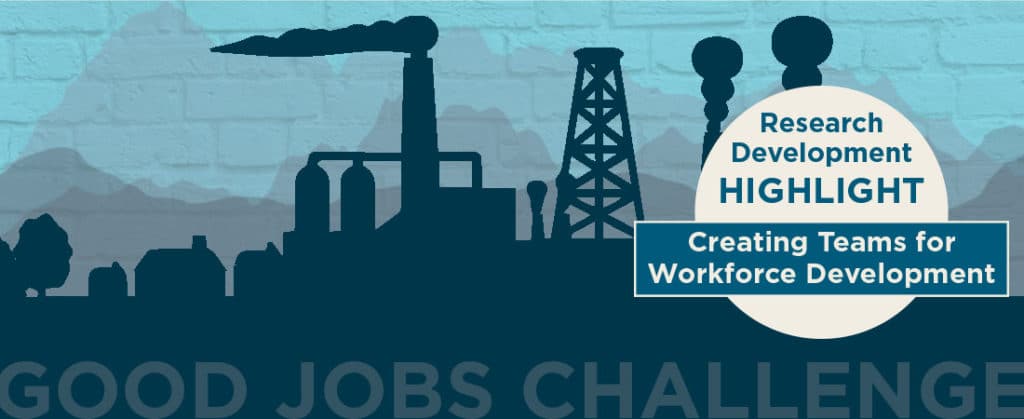
Stephanie Bohon
When she heard about the funding opportunity offered by the American Rescue Plan Good Jobs Challenge, Sociology Professor and Department Head Stephanie Bohon immediately recognized the “opportunity to do a lot of good for many people.”

Jon Shefner
Bohon agreed to join the leadership team to after talking to Jon Shefner, professor of sociology. He heard about the opportunity from Deb Crawford, UT’s vice chancellor of research, and Marc Gibson, principal investigator for the project and associate vice chancellor for partnerships and economic development in UT’s Office of Research, Innovation, & Economic Development (ORIED).
With help from Jennifer Webster, interim research development manager, they embarked upon a $21.9 million proposal development effort that would bring together 14 educational and training institutions, 17 industry partners, 13 community organizations, 10 economic development partners, four governmental entities, and two labor organizations. At UT, the massive effort included the involvement of 27 faculty and staff.
Titled “Human Investments to Reshape the Economy (HIRE),” the effort has created the East Tennessee Higher Education Alliance. Shefner says he was motivated to help lead the project because of its focus on labor and community engagement, two areas of his scholarly interests along with the green economy.
“The program addresses two crucial sectors in ways never seen,” he says. “It was clear that it was looking for areas of economic growth that were sustainable.”
Shefner says the key to rebuilding economic programs for the working class is to include them in the decision-making process. He says the university can participate in building economic democracy by targeting economic inequalities, and that this Good Jobs opportunity is consistent with UT’s strategic and historical role to “lift up the state.”
Crawford expresses her appreciation to Gibson, Bohon, and Shefner for their willingness to lead this project, which is very significant for not only UT, but for the region as a whole. She notes that ORIED had been waiting for the opportunity announcement ever since the Economic Development Administration’s CARES Recovery Act was announced in March 2020.
“UT is fortunate to have many resources and strong partnerships. HIRE has allowed us to show leadership for the state, beyond our flagship campus to address the workforce challenges our state faces. We’re pleased to demonstrate to the state their land grant university’s commitment to the state,” Crawford says.
She also joins Gibson, Bohon, and Shefner to express appreciation to staff members who brought all of the resources together in a compelling and, hopefully, competitive proposal. This includes Webster and Grace Loy, proposal coordinator in ORIED’s Division of Research Administration.
Webster managed the project over a three-month period that included the winter holidays and helped create the narrative, and Loy ensured compliance with complicated sponsor requirements. In the course of team-building, Webster convened dozens of meetings and coordinated the team’s collection of 60 letters of collaboration. She worked closely with Piper Communications, which was hired to gather stakeholder input that helped target the proposal’s initiatives.
“This project simply wouldn’t have happened without Jennifer Webster,” Bohon says.
Shefner encourages faculty to tap the talents at ORIED for such large opportunities. “Jennifer has deep expertise in writing proposals, she understands the minutiae of the call and the interpretation of this specific proposal process, which was not a standard call,” he says. “Plus, her budget expertise was critical.”
Whether the proposal is funded or not, everyone agrees that the benefits have already started to accrue. The Alliance has formed and continues its efforts to connect resources throughout the state. Crawford is excited about its potential to help develop Tennessee’s innovation economy, which requires a skilled workforce with training at all levels, from technical to community college degrees, bachelor’s and master’s degrees, to PhDs and postdoctoral experiences.
“This type of effort takes all of us,” Crawford asserts. “I’m absolutely positive more great things will come out if it.”
